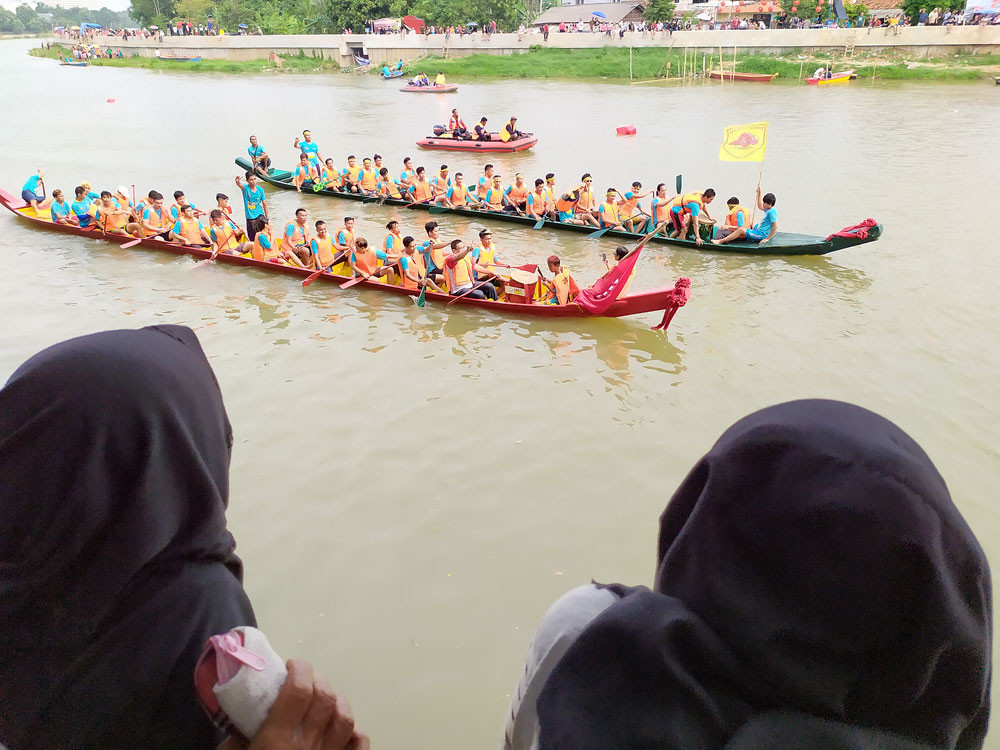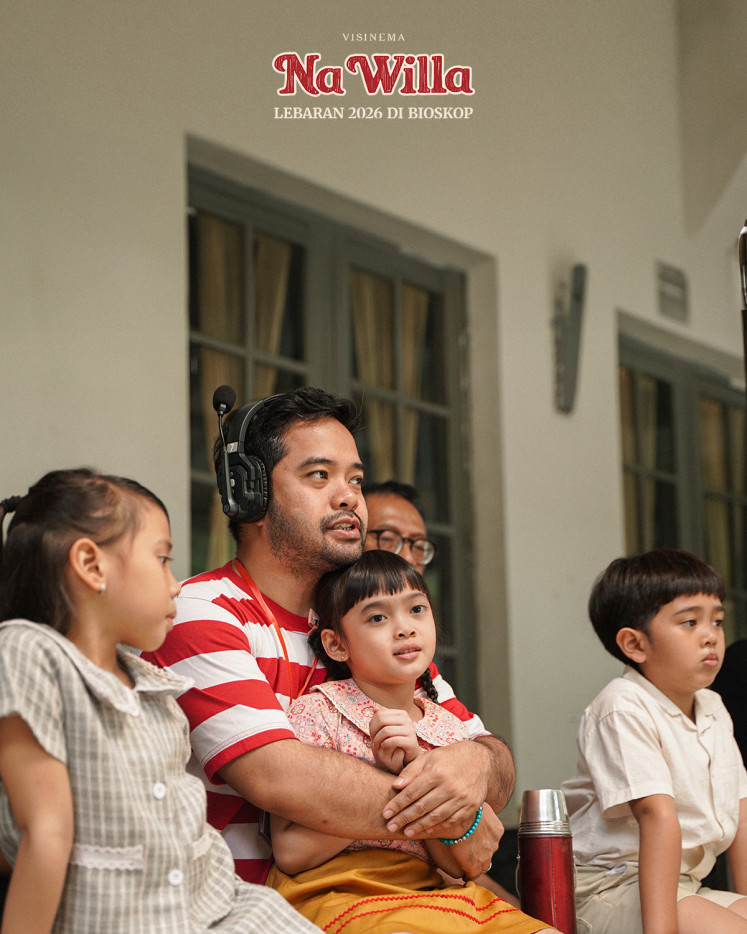Popular Reads
Top Results
Can't find what you're looking for?
View all search resultsPopular Reads
Top Results
Can't find what you're looking for?
View all search resultsDragon boat racing: From Chinese tradition to modern sport
Dragon boat racing as a professional sport is regulated by the Indonesian Rowing Association.
Change text size
Gift Premium Articles
to Anyone
P
eh Cun marks the fifth day of the fifth month on the lunar calendar. It is often associated with bacang, a tasty glutinous rice dish served on the occasion. However, there is also another tradition closely related to the festival, called the dragon boat.
In fact, “Peh Cun" literally means the act of paddling. Commonly known as perahu naga in Indonesia, dragon boat racing was a longstanding Chinese tradition that developed into a modern sport. On the occasion of Peh Cun on Thursday, this article explores the history of dragon-boating and its development in Indonesia.
Legend has it that there was a statesman called Qu Yuan in the Warring States period of ancient China who was banished by the court and jumped into the river out of despair. People paddled on long wooden boats in search of Qu, and in order to prevent fish from eating his body, they dumped rice dumplings into the water. This became an annual ritual and the rice dumplings are what we now call bacang, while the longboats have evolved into the dragon boats we know today.
Around four decades ago, dragon-boating began its transition from a ritual into a competitive sport that spread across the globe. It is sometimes classified as “Traditional Boat Race" in international competitions. Today, the wooden boats are replaced by ones made of fiberglass, while the wooden paddles are usually substituted with those of carbon fiber. One thing that has not changed is the dragon head and tail that are installed on the boat for races.
Up to this day, there are still many who confuse dragon boat with rowing. In the former, participants sit on either side of the boat and push themselves forward, while in the latter, participants have up to two oars and push themselves backward. The athletes paddle to the beat of the drummer while the steersman controls the direction. The dragon boat is much bigger than its rowing counterpart. A standard boat typically seats 18 to 20 paddlers side by side, and small boats would be around half the length with 10 paddlers. In traditional races using long wooden boats, there could be up to 50 paddlers in total.
Due to its ancient Chinese origins, one would assume that dragon boat racing is only for the Tionghoa or ethnic Chinese community. However, the modern sport now bears little resemblance to Chinese culture, the only relics of which would be the Peh Cun traditions mentioned above. In fact, apart from mainstream ones like badminton and soccer, Indonesia can proudly claim dragon-boating as one of its national sports.
During my undergrad in Hong Kong, I had the opportunity to train with a prominent fishermen club. My first coach used to represent Hong Kong in international races and he told me that the Indonesian national team was one of the best in the world.
Dragon boat as a professional sport is regulated by the Indonesian Rowing Association (PODSI). In the previous year, I had the opportunity of speaking with former national athletes and visiting the national team's training grounds in Jatiluhur, West Java.
Our athletes have performed remarkably well against other countries. In the 2018 Asian Games in Palembang, South Sumatra, Indonesia won two silver medals and one bronze; in the World Nations Championships, they bagged a total of seven medals, including gold in the 1,000 meters standard boat premier mixed category as well as the 200 meters small boat premier open race.
Apart from Palembang in 2018, Indonesia has been the host of multiple international races, such as last year's Padang International Dragon Boat Festival and the Bali Badung International Dragon Boat Festival. Jakarta, too, has its own annual Jakarta Dragon Boat Festival organized by the Jakarta Paddle Club. The worldwide community has been pushing for dragon boat racing to be included in the Olympics.
Perhaps the greatest beauty of dragon boat is that this sport relies much more on teamwork and coordination than strength or capabilities of star paddlers. It is one of the best team-building activities as it does not require talent in sport — one would most likely find it to be a humbling experience.
It is suitable for both seniors and teenagers, and the mixed-race categories make it more gender-inclusive compared to other sports. Thus, it is not uncommon for companies to feature dragon boat sessions as a team-building event or even turn it into a regular office activity.
Whether played at a professional level, amateur or purely for leisure, dragon-boating is a great experience for its participants. With the Indonesian team’s achievements in the international arena, the dragon boat could also be considered a part of our national pride. (wng)











